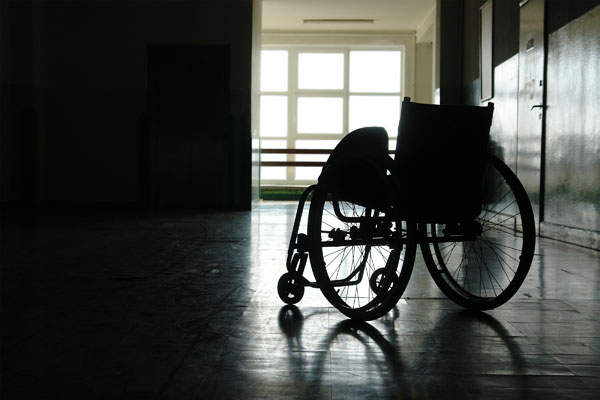Discrimination at the End of Life for the Mentally Disabled. It is not what you think!
May 17, 2009 by Viki Kind
Filed under For Healthcare Professionals

The people we are supposed to be protecting are not being allowed a peaceful, dignified and good death. There is substantial discrimination for those who are mentally disabled at the end of life. Wait a minute you say. Aren’t there laws that protect people who are disabled? Yes, but the laws and regulations can be a double edged sword and may end up actually harming the patient. Here is what happens.
A patient has been mentally disabled for their entire life. They have a family member who is their conservator and are part of their local Regional Center. So there are protections already in place. These protections have worked well during their lifetime but may cause them problems when it comes time to die. What happens is that because the patient can not say, “Enough already, I am ready to die”, they continue to have their dying/suffering prolonged. The doctors hesitate to do what they would do for a “regular” patient because they don’t want to get in trouble. If you or I wanted to stop receiving aggressive treatments, we could say stop and the doctors would have to listen. But because there are so many legal protections in place mandating the treatment of the disabled, even when the family wants to stop, it is difficult to stop treating the patient. And if the patient does not have a strong advocate, then the healthcare professional will err on the side of life and keep prolonging their dying process. This is why having a strong advocate in place may make a difference. The advocate can ask for the patient to be allowed the peaceful death offered to other patients.
An example of this is seen in the last days of the dying process. When people near the end of their life, they stop eating as their body is no longer able to digest and use the food. If you feed a dying person near the very end, you can increase their pain and suffering. For most of us when we are dying, we will refuse food and people will let us stop eating. Now it may be difficult for our loved ones to accept that we are no longer interested in eating, as food often represents love, but we should respect the patient’s wishes because we don’t want to increase their pain and suffering. For the mentally disabled patient there are laws which state they must always be offered food orally. So we feed the dying disabled person even though we would never treat a “normal” person that way as it would increase their pain as they are dying. This is what it comes down to. We treat the dying mentally disabled differently than a regular patient. And this can significantly change their dying experience. The laws which protected them throughout their life may harm them when they are trying to die a peaceful death. At the end of their life, we shouldn’t treat the disabled person as “special” but instead we should treat them as “normal.” That way we can ensure they get the good death they deserve.
Have a kind and respectful day.


